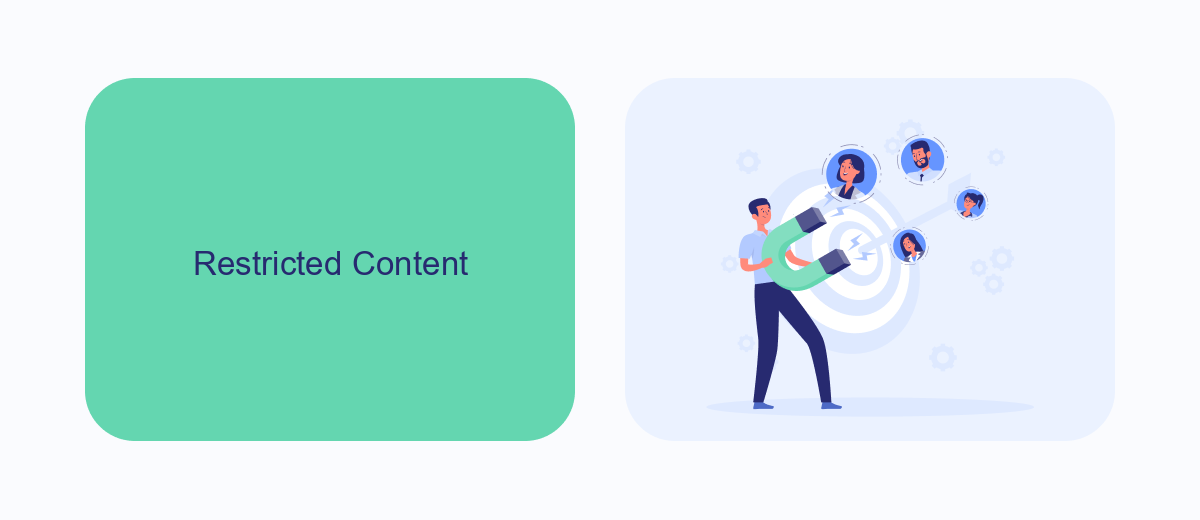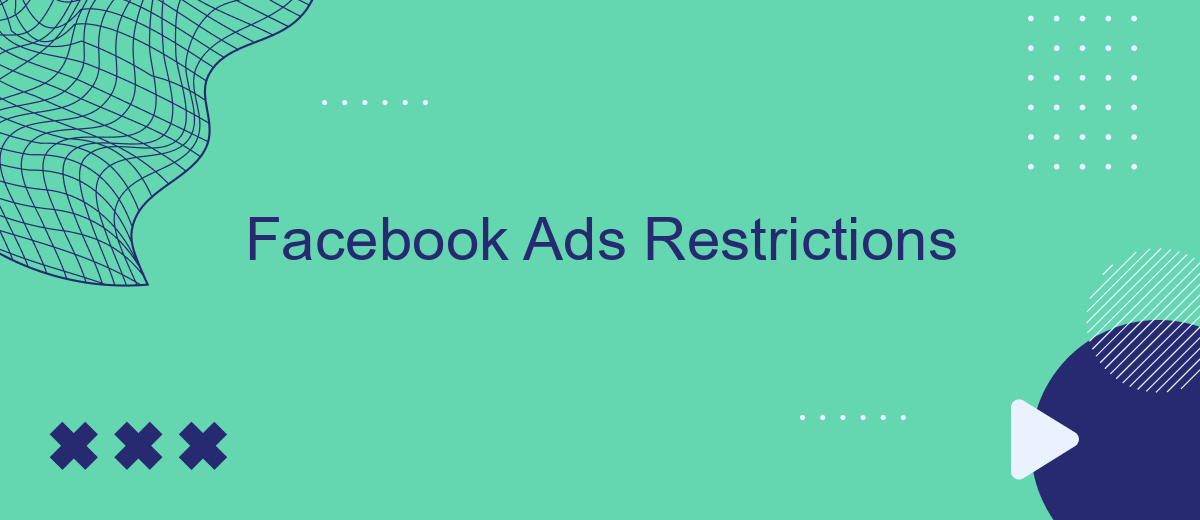In today's digital marketing landscape, Facebook Ads have become a powerful tool for businesses to reach their target audiences. However, navigating the platform's complex advertising restrictions can be challenging. These restrictions, designed to ensure user safety and maintain ad quality, can impact ad performance and compliance. This article explores the key Facebook Ads restrictions and offers insights on how to effectively manage and optimize your campaigns within these guidelines.
Prohibited Content
Facebook maintains strict guidelines to ensure that advertisements on its platform are safe, respectful, and in line with community standards. Advertisers must adhere to these rules to avoid the dissemination of harmful or misleading content. The platform prohibits certain types of content to protect users and maintain a positive environment.
- Illegal products or services, including drugs and counterfeit items.
- Discriminatory practices that target or exclude individuals based on personal attributes.
- Misleading or false information that can deceive users or exploit vulnerabilities.
- Adult content, including nudity or sexual activity, and content that promotes adult services.
- Violent content or the promotion of weapons, ammunition, or explosives.
- Content that infringes on the intellectual property rights of others.
By enforcing these restrictions, Facebook ensures that advertisements are suitable for a wide audience and do not harm the integrity of the platform. Advertisers must carefully review their content to ensure compliance with these guidelines, as violations can lead to the removal of ads and potential account suspension. Maintaining these standards helps foster a trustworthy and secure advertising environment for all users.
Restricted Content

Facebook imposes various restrictions on the types of content that can be advertised on its platform to ensure a safe and respectful environment for its users. Advertisers must adhere to these guidelines, which prohibit the promotion of illegal products, discriminatory practices, and misleading or false information. Additionally, Facebook restricts ads related to sensitive subjects such as adult content, alcohol, tobacco, and gambling, requiring advertisers to comply with local laws and age restrictions. These measures help maintain the integrity of the platform and protect its diverse user base from potentially harmful or offensive content.
To navigate these restrictions effectively, businesses can leverage tools like SaveMyLeads, which streamline the integration of Facebook Ads with other platforms. SaveMyLeads offers seamless connectivity, allowing advertisers to automate data transfers and optimize their ad campaigns while staying compliant with Facebook's policies. By using such services, advertisers can focus on crafting compelling content that aligns with Facebook's guidelines, thereby enhancing their reach and engagement without risking ad disapproval or account suspension. This proactive approach not only ensures compliance but also maximizes the potential of Facebook Ads as a powerful marketing tool.
Targeting Restrictions

When creating Facebook ads, it's crucial to understand the targeting restrictions that are in place to ensure compliance with the platform's advertising policies. These restrictions are designed to protect user privacy and foster a positive user experience. Advertisers must be mindful of these limitations to effectively reach their intended audience while adhering to Facebook's guidelines.
- Age Restrictions: Advertisers cannot target individuals under the age of 18 for certain categories, such as alcohol, gambling, and health-related products.
- Sensitive Information: Ads must not use sensitive personal data, such as race, religion, or political affiliation, to target users.
- Location Targeting: While geographic targeting is allowed, it must not be used to discriminate against or exclude people based on their location.
- Interest-Based Targeting: Facebook limits the use of certain interest categories to prevent misuse or discrimination.
- Custom Audiences: Advertisers must have user consent to use data for creating custom audiences, ensuring compliance with privacy regulations.
By adhering to these targeting restrictions, advertisers can create effective campaigns that respect user privacy and comply with Facebook's advertising policies. Understanding these limitations helps in crafting ads that are both impactful and compliant, ensuring a positive outcome for both advertisers and users.
Technical Requirements

When setting up Facebook Ads, it's crucial to meet specific technical requirements to ensure your campaigns run smoothly and effectively. Adhering to these guidelines helps in maintaining the quality and performance of your advertisements, ultimately leading to better engagement and conversion rates.
Firstly, ensure that your ad images and videos are of high quality and meet Facebook's specifications. This includes adhering to the correct aspect ratios, file sizes, and formats. Additionally, make sure your ad copy is concise and relevant to your target audience.
- Image size should be at least 1080 x 1080 pixels for square images.
- Video ads should be in MP4 or MOV format with a maximum file size of 4GB.
- Text in images should not exceed 20% of the total image area.
- Ensure your landing page is mobile-friendly and loads quickly.
Lastly, regularly monitor your ad performance and make necessary adjustments based on analytics. By following these technical requirements, you can optimize your Facebook Ads for better visibility and impact, ensuring your marketing goals are met efficiently.
- Automate the work with leads from the Facebook advertising account
- Empower with integrations and instant transfer of leads
- Don't spend money on developers or integrators
- Save time by automating routine tasks
Editorial and Commercial Practices
When it comes to editorial and commercial practices on Facebook, advertisers must adhere to strict guidelines to ensure their content is both compliant and effective. Editorial content should be authentic and engaging, avoiding any misleading or sensationalist language that could misrepresent the product or service. Advertisers are encouraged to provide clear and concise information, ensuring that users fully understand what is being offered. This transparency not only builds trust but also aligns with Facebook’s commitment to user safety and accurate information dissemination.
On the commercial side, integrating tools and services can streamline the ad management process, enhancing efficiency and reach. For example, services like SaveMyLeads can be invaluable for businesses looking to automate lead integration from Facebook Ads to their CRM systems. By automating these processes, companies can ensure quicker response times and more personalized customer interactions, ultimately driving better results. Such practices not only comply with Facebook’s advertising policies but also optimize the advertiser's workflow, allowing for more strategic planning and execution of campaigns.
FAQ
What are the common reasons for Facebook Ads restrictions?
How can I appeal a restricted Facebook Ad account?
What steps can I take to prevent my ads from being restricted?
How can automation help in managing Facebook Ads restrictions?
What should I do if my Facebook Ads account is repeatedly restricted?
What do you do with the data you get from Facebook lead forms? Do you send them to the manager, add them to mailing services, transfer them to the CRM system, use them to implement feedback? Automate all of these processes with the SaveMyLeads online connector. Create integrations so that new Facebook leads are automatically transferred to instant messengers, mailing services, task managers and other tools. Save yourself and your company's employees from routine work.

